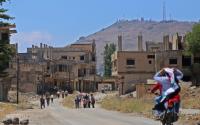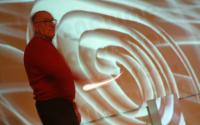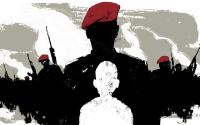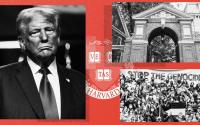The attack comes in a 100-page report issued by the church, drawn up by a working party of four diocesan bishops for the church's executive archbishops' council, exploring ways to counter terrorism in the post 9/11 world.
It argues that churches have a vital role to play in combating the threat and promoting Christian principles in a world characterised by power and violence.
The bishops are also critical of European and American policy towards Iran and its nuclear development, saying that the EU ought to offer a "suitably attractive incentive package" in order to dissuade Tehran from developing a nuclear weapons capability.
The report argues that respect for human dignity should be an underlying moral principle for relationships between states just as much as between individuals: "It is a moral principle that is expressed through the establishment of international law and its observance."
The report continues: "So international order is to be built not on brute power and fear but on law that is ultimately grounded in the divine wisdom ... When national interest is interpreted in a narrow or short-term way that excludes or ignores the flourishing of other communities, this is incompatible with a proper understanding of what is in our interest."
The four bishops - of Oxford, Coventry, Worcester, and Bath and Wells - are all on the liberal wing of the church. They did, however, receive advice from defence specialists and military experts in drawing up their work.
The report, drawn up since the July terrorist attacks on London, is particularly critical of the US and the effect of what it says are misreadings of biblical texts by some Christian groups in shaping some American attitudes, describing some millennialist views as deeply worrying and illegitimate: "The Book of Revelation, far from being a justification of American expansionism, is in fact a fierce critique of the imperial enterprise."
The report calls for the United Nations to be strengthened as the legitimate authority for all military intervention and opposes democracy being imposed on any other country by force, saying it must be adopted by a nation in culturally appropriate ways. It describes talk of a "war on terrorism" as a piece of dangerous rhetoric and warns of the danger of governments such as Britain's imposing laws which restrict hard won civil liberties.
The bishops argue that both the US and EU need to adopt more flexible policy approaches to Iran and accept the country's nuclear energy programme, while seeking to provide safeguards by which it can be properly monitored - though they accept that the Iranian government has not accepted such a strategy in the past.
In laying out 13 Christian theological and ethical principles for conduct in a world characterised by power and violence, the bishops say in their report: "The tendency of some religious groups, both Christian and Muslim, to give an oversimplistic reading of current events is harmful."
· Countering Terrorism: Power, Violence and Democracy Post 9/11 published by the House of Bishops of the Church of England, available from Church House, London SW1P 3NZ.






